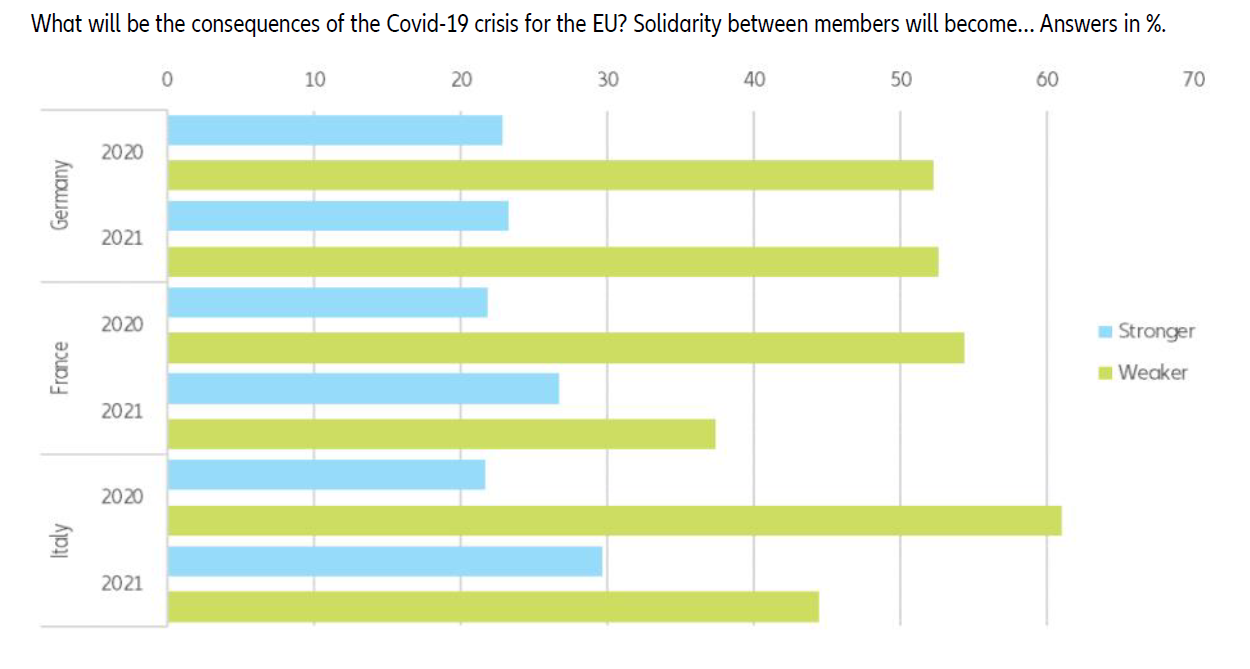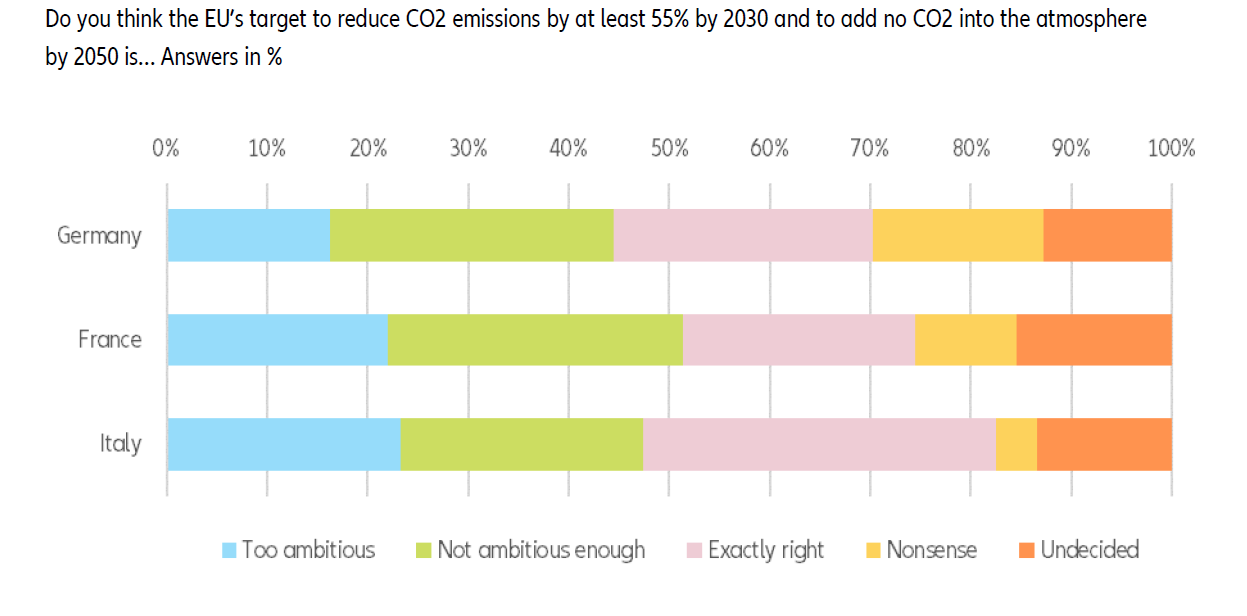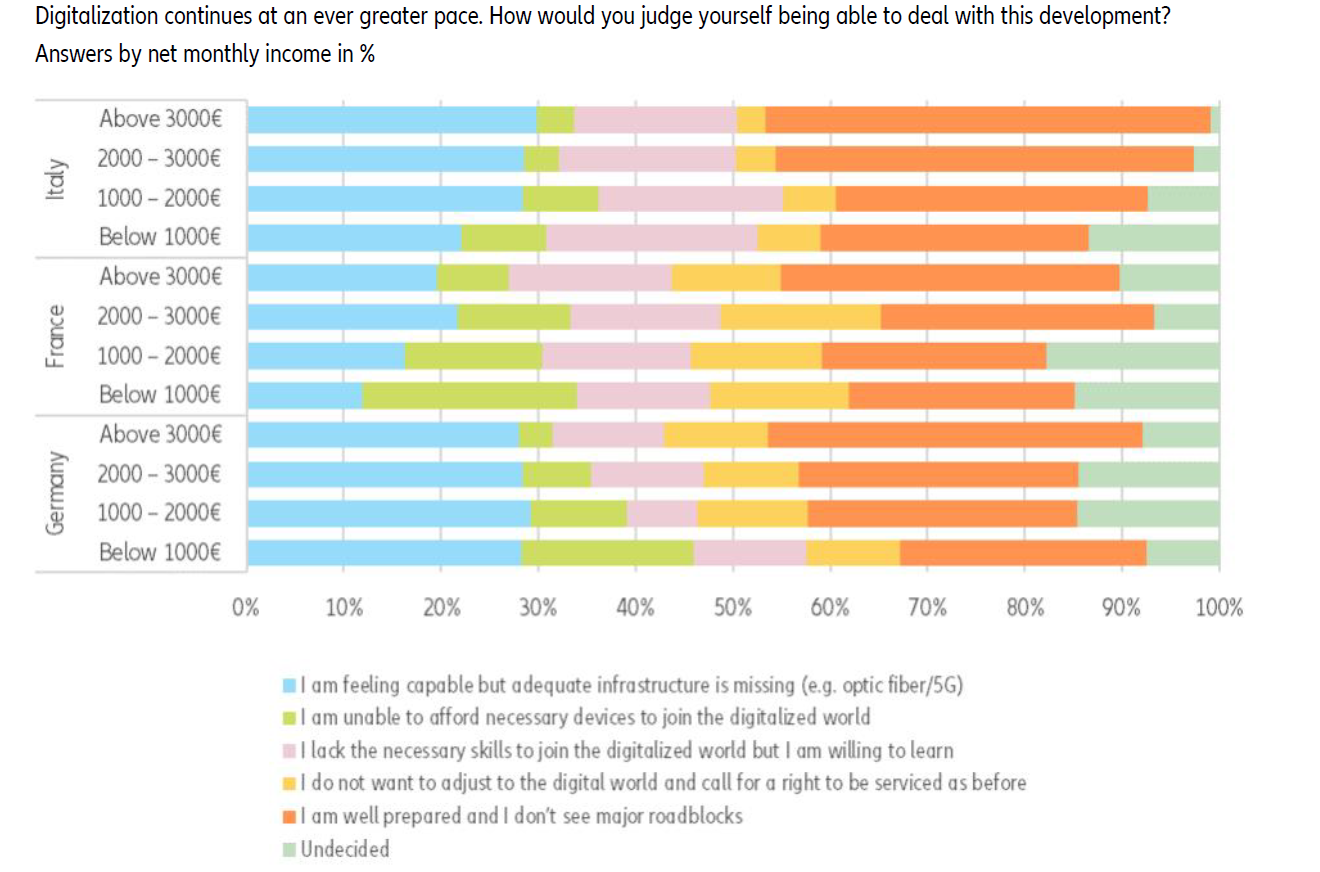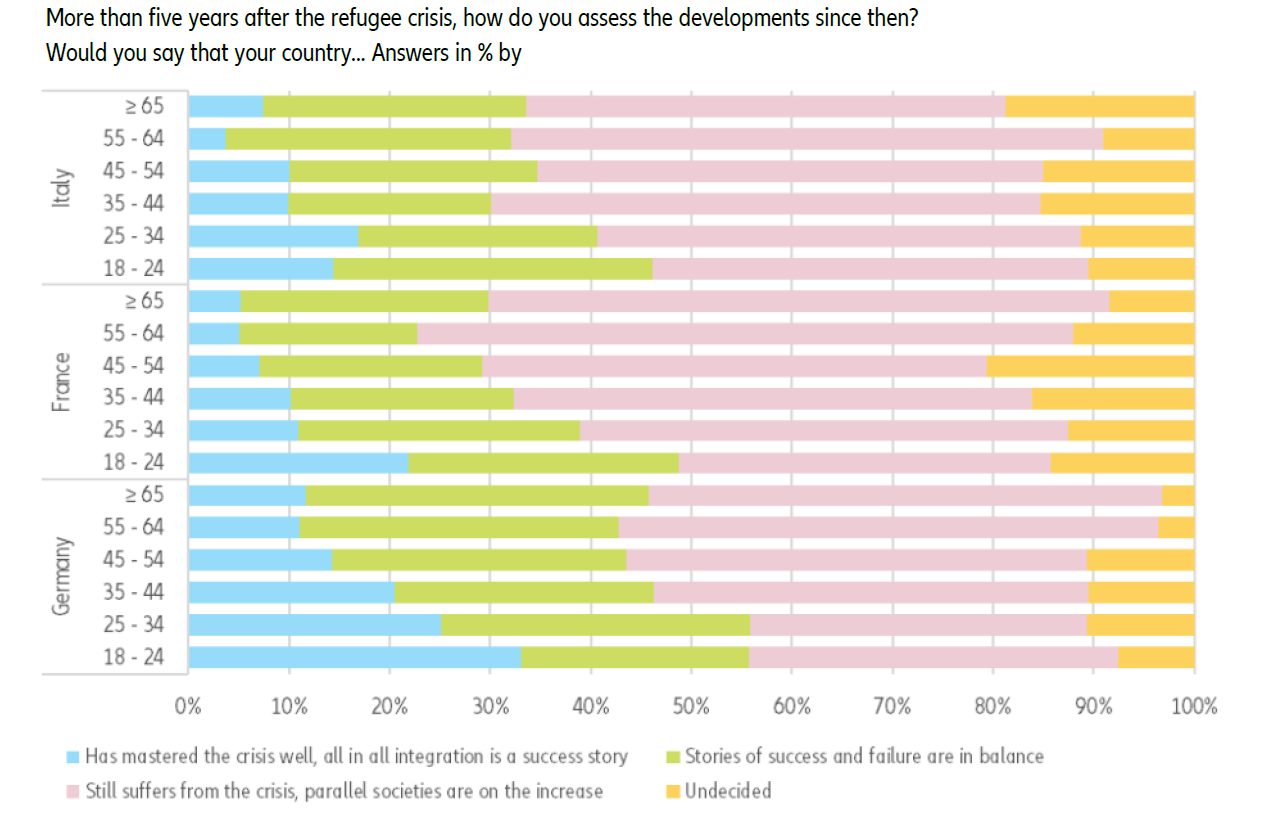If it weren’t for online shopping, remote working, Netflix and video conferences, the coronavirus would have shut us all down for a good part of a year and half. You would think this grand show of the virtues of digitalization would have converted many into believers.
Strangely, caution around digitalization persists. While the number of respondents who see more opportunities than risks in digitalization remains higher than doubters, it is still at pre-crisis levels of 35 percent.
The feeling of preparedness for a digital world is lacking in Europe, fomenting skepticism. Infrastructure problems, a lack of skills and unaffordable equipment are other negatives cited. A tenth of the respondents refuse outright to give digitalization a chance. Allianz economist Arne Holzhausen expresses surprise at the results. “The lockdowns were a showcase for the blessings of digitalization. Digitalization is now everywhere – just not in people’s hearts. Skepticism prevails. It seems that old fears die hard,” he says.
Of the three nationalities surveyed, the French seem to be the most resistant to digitalization.
However, the respondents believe that research, training and regulation could be factors that could make digitalization attractive. While the Germans and Italians prefer research to be the focus, the French want regulation to be the priority.







